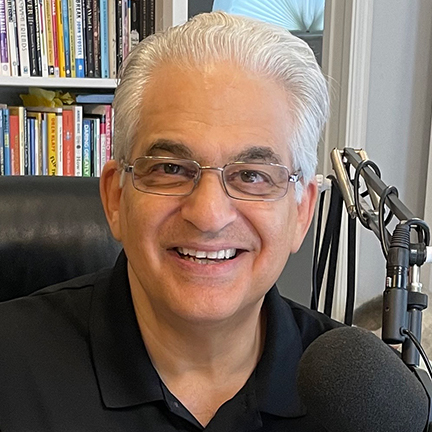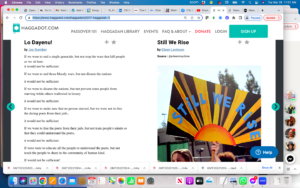Let’s Call Out Blatant Ageism Here!
I finally got around to watching Jon Stewart’s return monologue. Yuck! I was a fan of Jon Stewart but this is ageist crap! Yes, Biden is old. So is Trump, as Stewart admits. While I have plenty of bones to pick with Biden (and I’ve been in the streets protesting some of his policies, especially around immigration and the Gaza war), we don’t have ranked choice voting in US presidential elections. And that means that absent some deep and unpredicted shift in the political landscape, either Biden or Trump will be elected in November.
There are many reasons to vote for Biden over Trump. While flawed (as we all are), he’s a basically decent person who has mostly used his time in office to better the lives of ordinary USArians and to improve the condition of the world. And despite a completely dysfunctional Congress, he has still managed to:
- Enact several landmark programs including the American Rescue Plan and the Inflation Reduction Act (which provides a partial path toward a much Greener USA)
- Rebuild the economy post-pandemic, faster and better than any other country, in part because of his commitment to lifting distressed communities in red as well as blue states
- Stand up as a champion of labor
- Hire or nominate very competent people who broaden the diversity and visibility of non-white, non-hetero people within our government (three among many examples Black/Asian/female Vice-President Kamala Harris, openly gay Transportation Secretary Pete Buttigieg, and Black female US Supreme Court Justice Ketanji Brown Jackson)
Now, about his opponent:
- Facing 91 criminal counts in four separate indictments
- Hit with enormous penalties in two different courts that found he committed massive fraud and sexual abuse that the judge himself referred to as rape—and credibly accused of rape, rape attempts, or harassment by many other women
- Plagiarizes Hitler and brags that he’ll be a dictator who will arrest and deport vast numbers of immigrants—and incarcerate vast numbers of domestic opponents…Track record of tearing migrant children from their families and literally putting them in cages
- Emotionally less mature than my 16-month-old grandson (I happen to know a psychiatrist who told me back in 2016 that Trump would be easy to diagnose with a mental illness, but professional ethics standards meant only a doctor who was actually treating him could do that).
- Visibly incompetent
- History of attempting to wreck institutions of global order, from his recent undermining of NATO to pulling the US out of the Paris climate agreement until Biden put us back in
- Mocking a reporter with a disability (and then, in a typical Trump move, denying that he had mocked him)
- Insulting veterans on multiple occasions
- Trashing people of different ethnicity, religion, or nationality
- Name-calling people he doesn’t like (or doesn’t like anymore because they dared to question his decisions)
- Embracing dictators
- Declaring bankruptcy six times
- Stiffing hundreds, possibly thousands, of contractors
- Throwing even his most loyal supporters under the bus (including Mike Pence, who could have lost his life on January 6, 2021)
- Found to have lied 30,573 times just in his four years as president
- Oh, and let’s not forget he’s only 3-1/2 years younger.
Bias Against Biden
Biden is not an existential threat to democracy. Biden was handed a government in complete chaos that had burned bridges with many of its allies and built back a functional government that honors its promises. Biden is about the good of the country, while Trump appears to be mostly concerned with leveraging his position for profit and inflating his already overweight ego. And Biden’s record of accomplishment after three years in office far outstrips Trump’s four years.
So please tell me why the media is constantly dissing Biden because of his age and a perceived lack of mental acuity that by any reasonable standard is in better shape than Trump’s. How is it, for example, that the Washington Post (a liberal newspaper that prides itself on good journalism) actually ran a chart comparing how old Biden would be at the END of a second term with Trump’s age at the BEGINNING of a second term.
I have that chart in an email dated February 9, 2024 entitled “The 5-Minute Fix: How should Democrats address Biden’s unpopularity?”; I can’t find it on washingtonpost.com and therefore can’t link to it. Because it’s copyrighted material, I can’t reproduce it here, but I’d be glad to forward that newsletter to anyone who requests it through the contact form. I can also link to the February 10th Today’s Edition Substack newsletter by Robert Hubbell that mentions this chart along with five front-page New York Times stories about Biden’s age. And these are the liberals! WTF?
Proof that Age Doesn’t Matter
Finally, let’s look at five among thousands of models for aging with power:
- Grandma Moses had a 25-year career as a painter, BEGINNING AT AGE 76
- Pete Seeger was still writing and recording songs well into his 90s
- Nelson Mandela became President of South Africa at age 76
- My friends Frances Crowe and Arky Markham were both still activists on their 100th birthdays
- Gray Panthers founder Maggie Kuhn and sexologist Dr. Ruth Westheimer were working on the sexuality of old people into their 80s (disclosure: I was a VISTA organizer for the Gray Panthers in 1979-80 and met Maggie once when she was 75)
You are never too old—or too young—to make a difference. Jon Stewart should know better, and so should we. Work to get ranked-choice voting and other reforms such as those outlined at https://www.americanprogress.org/article/its-time-to-talk-about-electoral-reform/ (scroll down to the section entitled “A range of possible electoral reforms”).





